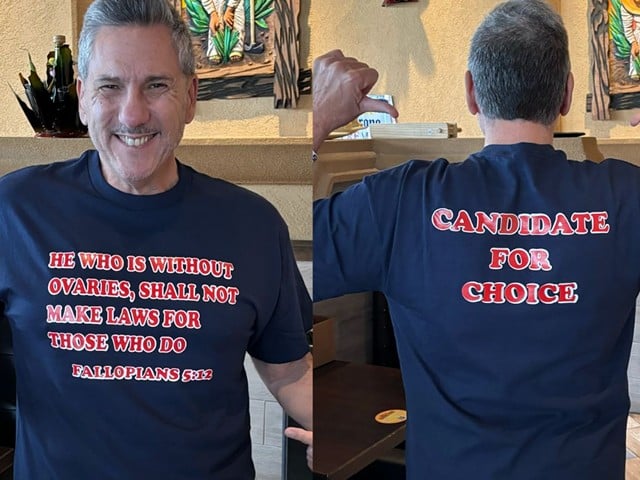This story is featured in CityBeat's March 20 print edition.
Mike Madanat, the founder of Authentic Life Counseling, will be answering your burning questions in the "What’s On Your Mind, Cincinnati?" advice column each month.
I've shared a friendship spanning over two decades with my best friend, from elementary school to college and now in Cincinnati, where we live. Our bond has weathered relationship changes and life transitions, always adapting to new circumstances with understanding and respect. We've enjoyed coordinating hangouts, sharing our love for sports, and exploring Cincinnati's breweries with our girlfriends.
Recently, I've noticed my friend growing distant, spending more time with others from his job, and leaving me feeling excluded. This shift has affected not only our relationship but also our girlfriends, who sense the tension. Despite feeling hurt, I'm torn between addressing or letting the issue slide. I’m scared that if I bring up my feelings, I'll appear controlling or needy. Expressing these emotions feels unfamiliar, yet I recognize the importance of open communication. It just feels like a part of our relationship we haven’t had to work on until now.
So, here's my question: Should I confront my friend about these changes, risking potential discomfort and tension, or should I allow the relationship to evolve naturally, even if it means further distancing? I'm hesitant, knowing that honest dialogue could either mend or strain our relationships with each other and our girlfriends.
I appreciate any guidance you can offer,
Anonymous (he/him)
Thank you for your question. It is clear to me that this relationship is important to you. You and your best friend have weathered many storms over the years, from childhood through college and into adulthood. You have shared countless experiences, bonded over the difficulties of being a Cincinnati sports fan, and have built a life intertwined with your partners in Cincinnati. But lately, there has been a shift, a subtle yet significant change that has left you feeling unsettled.
The once seamless coordination of hangouts has become disjointed. Your friend’s newfound connections with others have left you feeling excluded and distant. It sounds like it is not just impacting you, it is also affecting your partners too, creating an atmosphere of awkwardness and tension where there was once camaraderie.
Conflict is a natural part of relationships, occurring with friends, partners or family members. While it can cause, in your own words, discomfort and tension, there are ways to engage in challenging conversations and handle disagreements in a constructive way that benefits both parties in a relationship.
How do you typically handle disagreements? Do you tend to avoid them or confront them? Are you more inclined to seek compromise or ignore the problem altogether?
Everyone has their way of dealing with conflict, and there is no one-size-fits-all approach. Understanding your conflict resolution style is key, as it can impact how you interact with others. You can help gain insight into your conflict style by paying attention to your thoughts and
behaviors when disagreements arise. Once you recognize your approach to conflict, you can take proactive steps to address and resolve issues more effectively by asking yourself, “How is my conflict resolution style serving our relationship?” Does conflict avoidance tend to produce more distance in the relationship, or does the space bring us closer together?
I have a Conflict Styles Assessment that I like to use. If you feel it would be helpful for you, head to linktr.ee/authenticlifecincy where you can find the assessment.
Navigating tension in a relationship with a best friend can be challenging, but also an opportunity for growth and deeper connection. A common move in relationships where conflict arises is to avoid it. As humans, it can feel natural to avoid conflict for many reasons, such as:
1. Fear of Confrontation: Many people fear confrontation and the potential for negative emotions or reactions that may arise during conflicts. They may worry about hurting others or damaging relationships, so they choose to avoid conflict altogether.
2. Desire to Maintain Harmony: Humans are social beings who often prioritize maintaining harmony and avoiding disruptions in relationships. Conflict can be seen as a threat to this harmony, leading individuals to avoid it to preserve their connections with others.
3. Avoidance of Discomfort: Conflict can be emotionally taxing and uncomfortable. People may prefer to avoid these uncomfortable feelings by steering clear of situations that could lead to conflict.
4. Lack of Conflict Resolution Skills: Many individuals have not been taught effective conflict resolution skills or have not had positive experiences with resolving conflict in the past. Without the necessary tools and strategies, they may resort to avoidance as a coping mechanism. (Remember: Ask yourself, “How is my conflict resolution style serving our relationship?”)
5. Perception of Conflict as a Negative: Some people view conflict as inherently negative and destructive, rather than as an opportunity for growth and resolution. This perception can lead them to avoid conflict to protect themselves from perceived harm.
Do any of these resonate with you?
While conflict avoidance may offer temporary relief from discomfort, it can lead to unresolved issues, resentment, and communication breakdowns in relationships. Learning healthy conflict resolution skills, practicing assertive communication and cultivating emotional awareness are essential steps in overcoming the tendency toward conflict avoidance and building healthier, more resilient relationships.
Here are five areas to focus on that I believe can help guide you in the direction you want to go in and help answer the question of whether to confront or accept.
1. Transparency: If you value honesty and transparency, then I would encourage you to be open with your friend. Express your feelings calmly and respectfully and encourage your friend to do the same. Active listening is crucial here so do your best to understand their perspective without judgment in the same way you hope he will do for you. This might look like you sharing how you have been feeling hurt and more distant from him recently which has started to negatively impact your relationship.
2. Develop Boundaries: Healthy boundaries are essential in any relationship. Clarifying what is acceptable and what is not will help each of you understand the boundaries set for each other. This can help with misunderstandings and conflicts now and in the future. You could emphasize the importance of mutual respect and consideration. Let him know that you miss spending time together and value your friendship deeply. Express a desire for more frequent communication and actively listen for what your friend shares in terms of challenges or stressors they have been experiencing with work or relationships. Let them know that you understand and respect the importance of developing relationships at their place of employment. Lastly, collaborate on healthy boundaries that honor both of your needs, emphasizing the importance of honesty and reliability in your friendship.
3. Address in the Moment: Do not let tensions simmer and escalate. Address issues as soon as they arise, rather than allowing them to build up over time. This can prevent resentment and help you both maintain trust in the relationship.
4. Focus on Solutions: When discussing issues, focus on finding solutions together rather than placing blame. Collaborate to find mutually beneficial resolutions that honor both of your needs and feelings.
5. Practice Empathy: Try to understand where your friend is coming from and empathize with their perspective, even if you disagree. Empathy fosters understanding and compassion, which are crucial for maintaining healthy relationships.
Good luck! Your friendship means a lot to you, and you're hoping the tension will eventually fade away. However, avoiding the issue might only cover it up temporarily, like a quick fix. Real resolution usually comes from having honest conversations. I encourage you to share your feelings with your friend and stick to what you're certain about. I wish you the best going forward, and I hope both you and your friend can learn and grow together to build a strong, lasting relationship. Remember, cultivating relationships is like tending to a garden - use care, trust, and kindness to help it flourish. Together, I am confident you both will continue to weather any storm and bask in the warmth of lifelong companionship.
Each month, CityBeat will be publishing a question (or two) answered by Mike in our print issues and online. These questions can be related to personal relationships, your professional life, mental health issues or anything else you feel could use Mike’s guidance. Your identity will not be disclosed. Submit your burning questions now via email to [email protected].







